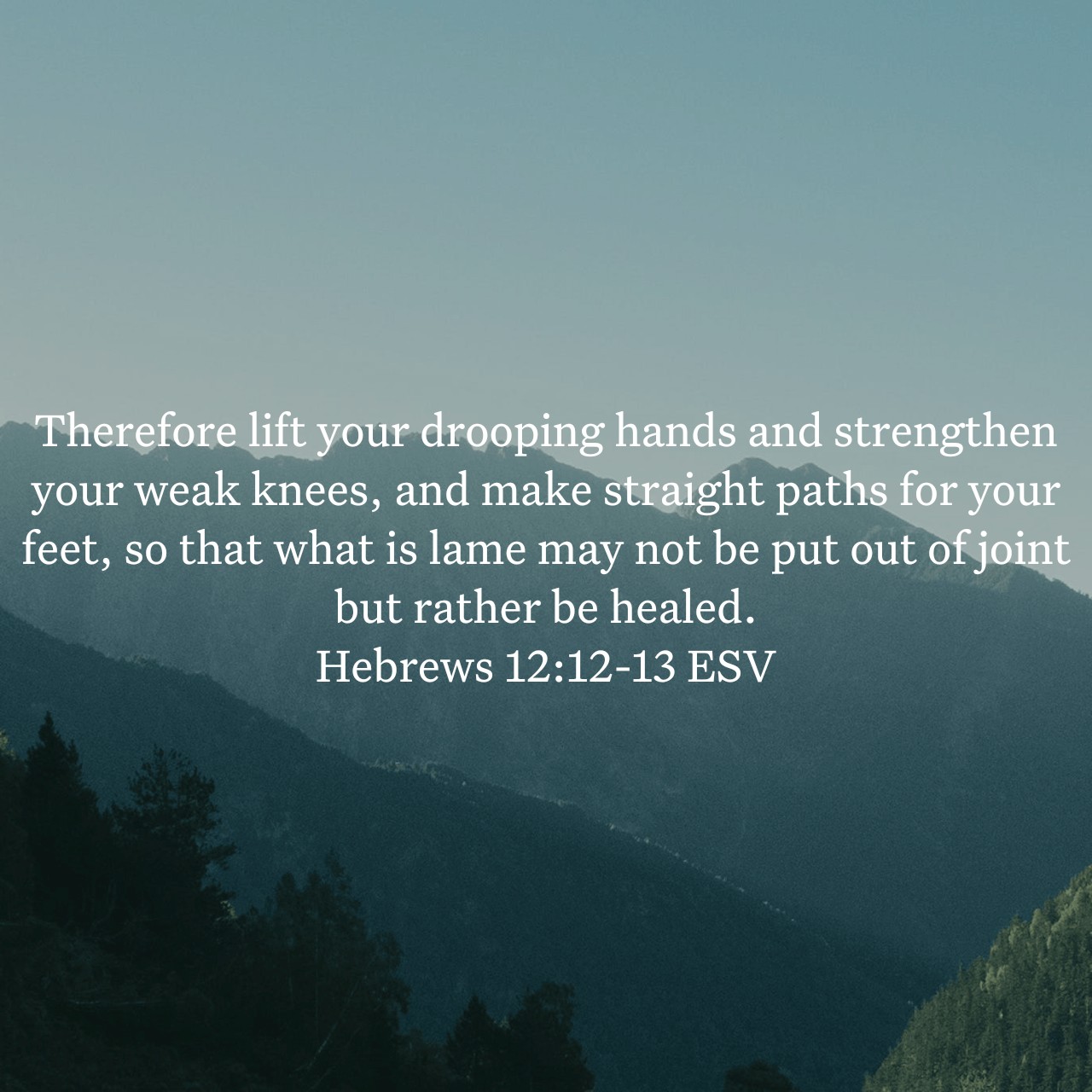Devotional 06 August 2025

The writer of Hebrews now brings us to the practical consequences of being sons of God. Having shown us the beauty of Christ and the seriousness of our calling, he now urges us to walk in light of that truth. The tone shifts, but the message deepens: Don’t give up your inheritance.
Just as Isaiah 35:3–4 once called Israel to courage in the face of exile, the writer here calls us to rise from discouragement: “Lift your drooping hands and strengthen your weak knees.” We’ve been disciplined by our loving Father, not to crush us, but to train us (Heb 12:5–11). Now, we are to walk straight paths (Proverbs 4:26–27), not only for our sake but for others in the body of Christ. Your endurance matters to someone else’s healing.
“Strive for peace with everyone, and for the holiness without which no one will see the Lord.” This isn’t optional. It echoes the words of Jesus in Matthew 5:8–9: “Blessed are the pure in heart, for they shall see God… Blessed are the peacemakers.” If we take our inheritance seriously, we must also take our responsibility seriously.
But beware the dangers. Esau stands as a cautionary tale. He was the firstborn, the rightful heir. But in a moment of hunger, he traded everything for a bowl of lentils (Genesis 25:29–34). The text calls him unholy not because he committed some public scandal, but because he treated the sacred lightly. He let go of something eternal for something immediate. Later, when he sought the blessing with tears, it was too late. His appetite had written a check his soul couldn’t cash.
How many today walk away from the riches of grace for fleeting pleasures? How many forfeit their birthright in Christ for a moment’s relief, entertainment, or comfort?
Let us not be those who “fail to obtain the grace of God” (v.15), letting bitterness take root or holiness fall by the wayside. Instead, let us walk in strength, strive for peace, pursue holiness, and treasure our inheritance. The Kingdom is ours in Christ, don’t trade it for a bowl of beans.